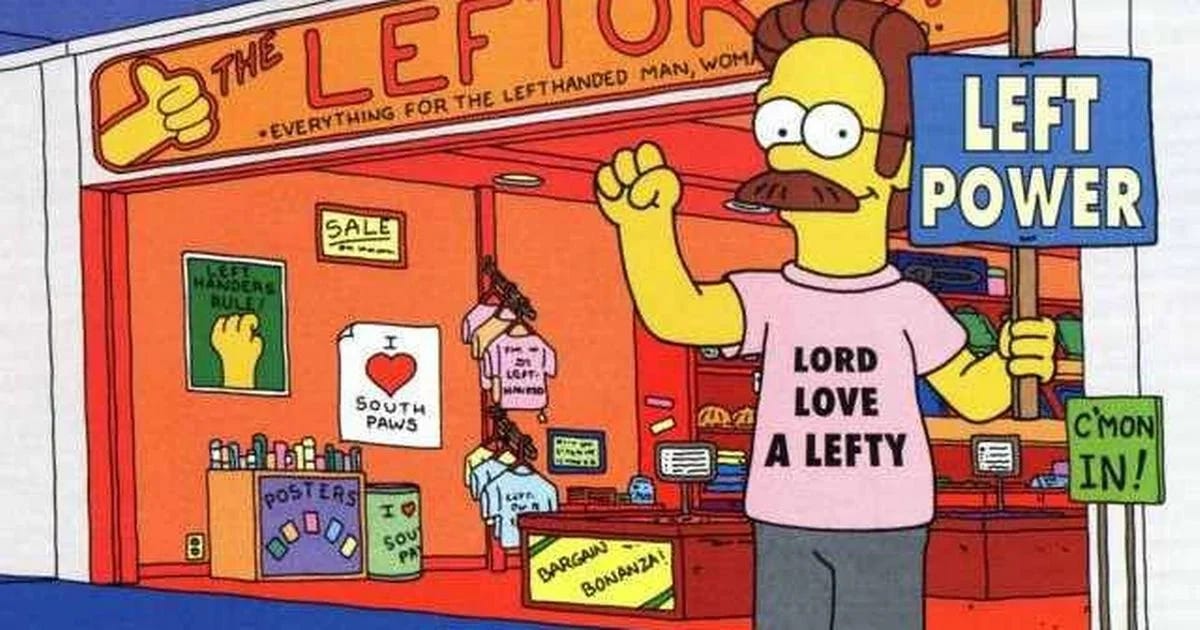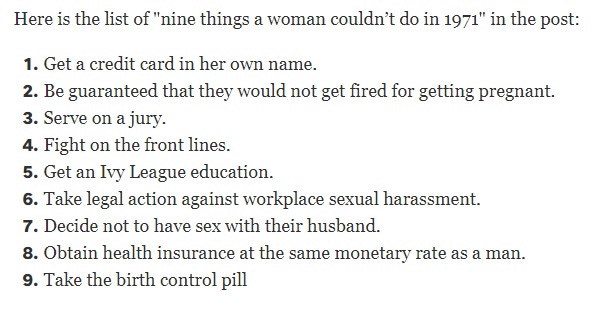A fun feature of English is that we can intensify ordinary words by adding other, otherwise unconnected words to them. My favorite example is the word “ass,” which, when appended to seemingly any adjective, makes that adjective stronger and more fully itself: big-ass, dumbass, grown-ass, hard-ass, long-ass, etc. The Finnish comedian ISMO has an amusing analysis of the phenomenon:
Other examples of intensification through appendage include “level best” (e.g., “I don’t know if it’s possible, but I’ll do my level best”); “lived experience” (by definition, all experience is lived; if you didn’t live it, it isn’t experience but rather something you read about online, heard from a friend, or just made up); and, apropos this essay, “sea change.” A sea change is more than a mere change. The intensified expression implies a complete revolution in a culture and a complete change of opinion—which often happens quite quickly. The phrase comes from The Tempest and originally referred, somewhat disconcertingly, to the way that bodies decompose in the ocean:
Full fathom five thy father lies;
Of his bones are coral made;
Those are pearls that were his eyes:
Nothing of him that doth fade
But doth suffer a sea-change
Into something rich and strange.
In my five decades here on earth, I have observed multiple sea changes in which destructive practices, situations, and opinions that we all had assumed were calcified and inexorable were gradually whittled away at or abruptly discarded—or sometimes they just evaporated, leaving us to think, “What was wrong with us? Why on earth did we do THAT for so long? It’s a good thing we know better now.”
Let’s Celebrate a Half-Century of Sea Changes
The sea change that most Americans immediately think of is gay marriage. In my more self-congratulatory moments, I pat myself on the back because I have supported the right to gay marriage since 1989, when I read Andrew Sullivan’s article making “the (conservative) case for gay marriage” and thought to myself, “Yes! This makes sense! Why shouldn’t gay people be able to get married too?” It took a bit longer for the rest of the country to catch up to Sullivan, and we’re still not all the way there (as of last month, 71 percent of Americans support the right to gay marriage), but this change from prejudice to justice happened with remarkable, heartwarming speed. Heck, even the Marine Corps recently published this (ill-advised) photo to celebrate Pride Month:

True to my brand as the Happy Wanderer, I feel happy gratitude1 for the many sea changes during my lifetime that have improved our lives and made our country safer and more just:
Interracial relationships and marriages, once shocking and even illegal, are now accepted and even welcomed in most communities.
Religious intermarriage, which once divided families and caused parents to reject their children or declare them dead, are now accepted and even welcomed in most communities.
The adult smoking rate has been cut almost in half since as recently as 2005—from 20.9 to 12.5 percent. During my 1970s childhood, an astonishing 43 percent of US adults smoked. And this wasn’t just in restaurants, bars, or private homes either. My mom was briefly in the hospital in 1978, and her roommate in the next bed smoked. Smoking was such an accepted part of life that my high school actually provided a smoking area for students.
Drunk driving was once considered normal or even cool. Boys in my high school used to brag that getting away with drunk driving was a sign that you were a really great driver. Since 1982, drunk-driving fatalities have decreased 45 percent. In addition, we no longer consider drunk driving to be socially acceptable, and Lyft and Uber have made it much easier for people to avoid driving drunk.
Our progress on car safety is truly stunning: The death rate per mile driven has dropped 92 percent since we began keeping records. This is no surprise to me; I am old enough to remember when most people refused to wear seatbelts, when moms held their babies in their laps in the front seat, and when the carpool for my children’s chorus crammed as many as nine kids into a mid-sized car.2
Cannabis is now legal for recreational use in eighteen states and DC and is decriminalized in most others; it is completely illegal in only ten states. Some ten years ago, a wonderful and much-loved teacher from our kids’ New Jersey school nearly lost his job and even faced prison because police found a couple of joints in his car. Now recreational marijuana is fully legal in New Jersey.
The Americans with Disabilities Act of 1990 prohibits employment and other forms of discrimination against people with disabilities and ensures that disabled people have full access to public spaces and a free and appropriate education. The ADA was a bipartisan effort spearheaded by Democratic senators, approved by an overwhelming 76-8 vote in the Senate, and signed into law by the Republican President George H. W. Bush. See? It is possible for Democrats and Republicans to work together for the good of our country. And we should be proud. Take it from me, someone who lives and travels extensively in Europe, where elevators, wheelchair ramps, and public special education are thin on the ground: Our country is far ahead of other developed nations on ensuring rights to people with disabilities.
Left-handed people are no longer forced to use their right hand in school and no longer suffer from learning disabilities that were caused by this odious practice.
We took lead out of gasoline and, working with countries around the world, repaired the ozone hole.
We vastly improved the problem of childhood poisoning and injury through the invention of child safety-caps and the funding of poison-control hotlines.
The cloud of shame surrounding mental illness and addiction has mostly dissipated, and we rightly recognize that these afflictions are not moral failings but rather illnesses we should treat. More than 40 percent of Americans have seen a therapist at some point in their lives, and nearly 30 percent of Americans sought therapy during the pandemic. We are a long way from the days when Thomas Eagleton was considered unfit to be George McGovern’s running mate because he had been hospitalized for depression.
And last but not least, in a change that is dear to my heart, women’s circumstances have improved to the extent that women are close to having equal rights to men. My mother-in-law recently attended her sixtieth college reunion, and her compatriots were reminiscing about the big controversy when they were in school: Whether women should be allowed—allowed!—to wear pants. Most of us have seen the meme below, which Snopes confirms is accurate. I’ll add one more example, from Switzerland, of something women couldn’t do in 1971: vote.
All of these sea changes arose from a variety of efforts, and often from a combination of several—technological developments, scientific discoveries, people speaking honestly with their friends and family about their lives and experiences, dedicated groups of citizens working together, politicians passing laws, experts testifying to the dangers of certain practices and chemicals, and regular people realizing, “This is stupid! Why are we doing things this way? Let’s just stop!”
Learned Helplessness and Gun Violence
I amassed this list to counter the learned helplessness so many Americans seem to feel about gun violence.3 Learned helplessness refers to a sad phenomenon: When terrible things are inflicted on us repeatedly, we begin to feel that we have no control. We become helpless and give up. We stop trying to escape the bad situation or fix it.
But when it comes to gun violence, we’re not helpless! It may seem as though the NRA and fifty Republican senators are holding hostage the vast majority of us who want sensible gun safety. It may seem that there’s nothing we can do, and that we simply have to submit to inevitable human sacrifice in order to appease the gun radicals. But there are more of us than there are of them, and as I hope my list (which is by no means exhaustive) suggests, we Americans are strivers and innovators. If we think a situation could be better, we improve it. We do this all the time. We invent something, or we speak up, or we get to work, or we fight. Just this week, the Senate struck a bipartisan gun safety agreement, which is a good start.
Next week, I will write about some of the best ideas I’ve seen—and also a few I came up with on my own—that would ameliorate the scourge of gun violence. But for now, what about you, readers? What sea changes have you observed in your lifetime? Please share your thoughts in the comments!
The Tidbit
How about some more inspiration? For this special two-part tidbit, I’d like to share two songs I love. The first, “The News,” by Carbon/Silicon (Mick Jones from The Clash and Tony James from Generation X) is enormously catchy and includes these lyrics, which always lift my spirits: “People started calling those in power to account, / and people started saying ‘I want my voice to count,’ / and people starting learning that they don’t need to fight, / and they control their future, and try to make it right.”
I would argue that the most important recent sea changes happened outside the US—the end of apartheid in South Africa and the overthrow of Communism throughout Eastern and Central Europe. To quote Hemingway’s line about going bankrupt, Communism was overthrown “Gradually, and then suddenly.” In Czechoslovakia, the Velvet Revolution began on November 17, 1989, when students at an International Students’ Day parade marched to protest the Communist regime. Police beat the students brutally. The next day, the students returned, this time with their parents. People thronged to Wenceslas Square, and within days the crowd swelled to 300,000 and outgrew the square. The protest moved across the river to Letná Park. In total, 600,000 people protested in the park, with speeches, music, and (I suspect) beer. The folk singer Jaroslav Hutka, whom the Communists had forbidden to perform the song “Náměšt’,” because of lyrics about freedom, played the song at Letná Park, and everyone sang along.
In 2017, when I lived in Prague, I sang a solo recital of Czech music. “Náměšt’” was the final song, and one of my son’s friends and his father joined me on guitar and acoustic bass. The father had been a political prisoner of the Communists as a young man. In the audience was a friend of mine who had been at Letná Park in 1989 and had heard Hutka perform the song. And there we all were not such a long time later, in an international school in a prosperous, free Czech Republic, singing the song together. The arc of the moral universe is long, but it bends toward justice.
A disclaimer and a question: As you read this list, you may find yourself wanting to object to it. You may feel outrage about all the work we still have to do on a number of these problems. For example, I am aware that while we did take lead out of gasoline, lead poisoning is still a problem. Former Michigan Governor Rick Snyder and other Michigan politicians decided to cut costs by sourcing drinking water from the Flint River rather than Lake Huron, which was safer. This decision caused thousands of children in Flint to be poisoned and to suffer permanent injury from lead in their water. I could come up with similarly dire stories about imperfect progress for every single item on my list.
However, I think it’s useful to ask ourselves why it is that when we hear someone celebrate a victory, we so often want to rush in with criticism and with reminders about all the problems that remain. Yes, our country is by no means perfect, but isn’t it possible that a constant focus on how terrible things are makes us feel hopeless and less capable? I think that celebrating victories can make us feel powerful and more able to fight to make the world a better place.
Two kids sitting next to the driver in the front, three big kids sitting in the back, each with a smaller kid on his or her lap, and the smallest kid lying over them.
“Gun violence” includes suicide. Suicide by gun accounts for twice as many gun deaths as murder by gun does. When we talk about gun violence, we also need to consider how to stop suicide by gun.






A quick clarification from my mother-in-law: The debate was whether the students could wear pants to dinner and class only--they were allowed to wear them in informal contexts.
Mari--The Finnish comedian is so funny I laughed so hard I cried during the video. On a more serious note, I agree with you about not liking how quickly people want to say that any kind of change is not good enough, or that "nothing can be done" about X issue. This kind of attitude breeds cynicism and despair. I have a quotation I love "He'd rather die with his heart on his sleeve than end up another cynic." I think that's it--from Colum McCann's LET THE GREAT WORLD SPIN. Yes, let's at least try to make change and believe it is possible, because, as you show, it is!